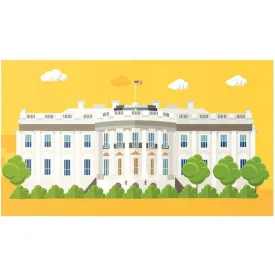A White House freeze on recently issued regulations has left proposed regulations on the new Centralized Partnership Audit Regime out in the cold. On January 20, 2017, a memorandum from Assistant to the President and Chief of Staff Reince Priebus directed regulations that had been sent to the Office of the Federal Register, but not yet published, to be immediately withdrawn for review and approval by the applicable Trump administration department or agency head for matters of fact, law, and policy. Although the Internal Revenue Service (“IRS”) issued proposed regulations (REG 136118-15) (the “Proposed Regulations”) on January 18, 2017, they were not published in the Federal Register and therefore have been withdrawn to comply with the White House directive.
The Proposed Regulations pertain to the centralized partnership audit regime enacted by the Bipartisan Budget Act of 2015 (the “BBA”), as revised by subsequent legislation. The Tax Technical Corrections Act of 2016 (the “Technical Corrections Act”), introduced in both Houses of Congress on December 6, 2016, contains corrections and clarifications to the BBA, but those corrections are not reflected in the proposed regulations because they were not enacted in the 114th Congress. The technical corrections bill is expected to be reintroduced in the new Congress.
It is not clear what should be expected from the review. If no substantial questions of law or policy arise, the proposed regulations can be published in the Federal Register and the comment process will proceed as usual. If concerns arise, the proposed regulations could be permanently withdrawn and rewritten. The Priebus memo imposes no deadline to complete the required review. The new partnership audit rules take effect for partnership tax years beginning January 1, 2018, so delays could affect the ability of the IRS to provide timely guidance to partnerships on how to implement the new rules, creating significant uncertainty among taxpayers about how to comply and how audits will affect their business interests going forward.
Highlights of the Proposed Regulations
The Proposed Regulations include several taxpayer-friendly provisions and clarify many issues left open by the BBA and subsequent amendments to the relevant sections of the Internal Revenue Code. However, the Proposed Regulations do not provide dispositive guidance regarding several important issues raised by taxpayers and contain potentially worrisome provisions (e.g., complicated tax item netting procedures and material restrictions on accounting for reallocations among the partners of an audited partnership), many of which should be addressed in comments to the IRS and Congress, pending the release of new technical corrections legislation and regulations.
The Proposed Regulations are lengthy, but generally include:
-
Procedures for electing out of the new partnership audit rules. Notably, a partnership with the following kinds of partners will not be permitted to elect out: partnerships, disregarded entities, trusts, non-U.S. entities other than non-U.S. entities that would be treated as a corporation, nominees or agents, and certain estates.
-
Guidelines for eligibility, designation, revocation, and resignation of a partnership representative. In addition, the Proposed Regulations would require that an individual be designated to act for a partnership representative that is an entity.
-
Instructions for calculating imputed underpayments. These instructions are broad, vague, and generally err on the side of maximizing tax revenue resulting from an audit regardless of how partnership items were actually taken into account by partners. Taxpayer comments may materially improve this portion of the Proposed Regulations, in particular.
-
Mechanisms for making a “push-out” election under Code Section 6226. The Proposed Regulations include a reserved section for procedures that may permit a partnership that is a partner of an audited partnership to further “push out” adjustments resulting from an audit. However, comments in the preamble to the Proposed Regulations indicate that the IRS does not view corresponding provisions of the Technical Corrections Act favorably.
-
Procedures for filing administrative adjustment requests. Importantly, the Proposed Regulations expressly provide that a partnership filing an administrative adjustment may elect to “push” an imputed underpayment to reviewed year partners.
The IRS requested comments on many of the provisions of the Proposed Regulations. Although the freeze could result in revisions to the proposed rules, and the review process will delay the due date for comments, we recommend that stakeholders preemptively proceed with evaluating the regulations as-is because there will be a short time frame to complete the normal guidance process once the review process is complete and prior to the January 1, 2018 effective date of the new rules. If a new technical corrections bill is introduced in the meantime, stakeholders also should consider the impact of those policies on the partnership audit process.




 />i
/>i

